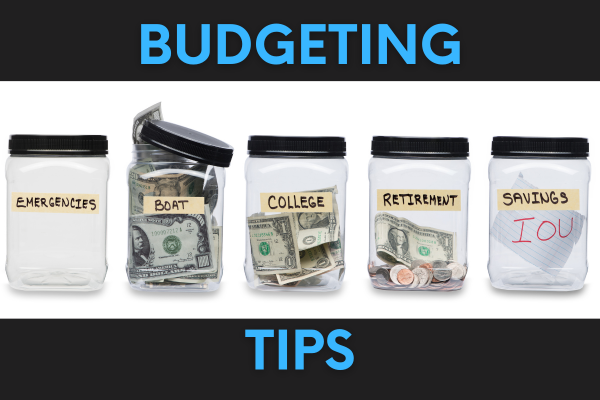Budgeting is a fundamental financial tool that serves as the roadmap to a stable and prosperous financial future. It is the process of carefully planning and managing your income and expenses to ensure that you are in control of your finances. By creating a budget, individuals can prioritize their spending, set achievable financial goals, and navigate through various life stages with greater financial security. Whether you’re aiming to save for a big purchase, pay off debt, or build an emergency fund, budgeting empowers you to make informed financial decisions and achieve long-term financial success.
Effective budgeting offers a myriad of benefits that contribute to overall financial well-being and stability. It helps you identify unnecessary expenditures and enables you to manage your spending more efficiently. Budgeting provides a clear overview of your income and expenses, allowing you to take control of your financial situation. Budgeting facilitates the growth of your savings, helps in prioritizing debt repayment, prepares you better to handle unexpected expenses without compromising your financial stability. Effective budgeting is a powerful tool that not only helps manage day-to-day finances but also plays a crucial role in achieving long-term financial success and peace of mind.
Conducting a financial assessment is the crucial first step in the budgeting process. This involves thoroughly evaluating your current financial situation to gain a clear understanding of your income, expenses, assets, and liabilities. By doing this you lay the groundwork for creating a realistic and effective budget that aligns with your financial goals and priorities. This process empowers you to make informed decisions and take control of your financial future.
Calculating your income and expenses is a fundamental step in understanding your financial situation and creating an effective budget. Compile information on all sources of income. Add up all your income sources to determine your total monthly gross income. Identify and list your fixed expenses, which are consistent every month like rent, mortgage, utilities, car payments, insurance etc. List your variable expenses, which may fluctuate from month to month. This can include groceries, dining out, entertainment, transportation, and other discretionary spending. By calculating your income and expenses, you gain a comprehensive understanding of your financial picture.
Identifying areas for improvement is a critical aspect of the budgeting process, as it allows you to pinpoint areas where you can optimize your financial habits and make positive changes.
Establishing clear and achievable financial goals is a crucial step in creating a purposeful and effective budget. When setting both short-term and long-term goals, make sure they are specific, measurable, achievable, relevant, and time-bound (SMART). Regularly revisit and adjust your goals as circumstances change, ensuring that your budget remains aligned with your evolving financial aspirations.
Prioritizing your financial goals based on urgency and importance is essential for effective budgeting. When prioritizing goals, consider both the urgency of achieving them and their overall importance in your financial strategy. Regularly reassess and adjust priorities as your financial situation evolves and new opportunities or challenges arise.
Making goals specific, measurable, and realistic helps you clarify your objectives, track your progress, and ensure that your financial aspirations are achievable within your current circumstances. Regularly review and adjust your goals as needed based on changing financial situations and priorities.
By breaking down your income and expenses in detail, you gain a clear understanding of where your money is going and can make informed decisions to align your spending with your financial goals. Regularly revisit and adjust these breakdowns.
Allocate a portion of your income to cover essential needs, including housing (rent/mortgage, taxes, insurance), utilities, and groceries. This ensures financial stability by prioritizing fundamental living expenses within the budget, fostering a balanced and sustainable financial plan.
Allocate a designated amount of your budget for discretionary spending, covering entertainment and dining out. This allows for enjoyment and leisure while maintaining financial discipline.
Regularly review your spending to maintain financial control and make informed decisions. Consistent evaluations of your budget allow for adjustments, ensuring it aligns with your financial goals. This proactive approach enhances awareness of spending patterns, identifies areas for improvement, and promotes financial stability.
Identify areas to cut back on by closely examining your expenses. Regularly assess discretionary spending, subscriptions, and non-essential purchases. This proactive approach enables you to optimize your budget, redirect funds towards savings or debt repayment, and ensure financial resources align with your priorities.
Establishing an emergency fund is a financial cornerstone. Allocate a portion of your income to create a safety net for unforeseen expenses or job loss. This fund, equivalent to three to six months’ living expenses, provides financial security, reducing stress during unexpected circumstances. Regular contributions and a commitment to its non-negotiable status in your budget build resilience and ensure a stable financial foundation.
Prioritize debt repayment by allocating a specific portion of your budget to eliminate high-interest debts systematically. This focused approach minimizes interest payments, accelerates debt reduction, and improves overall financial health. By making debt repayment a priority, you free up financial resources for savings and other goals, creating a path toward long-term financial stability and independence.
Trim unnecessary expenses by scrutinizing discretionary spending, subscriptions, and impulse purchases. Regularly assess your budget to identify non-essential items, redirecting funds toward savings or debt reduction. This mindful approach enhances financial efficiency, ensuring your resources align with your priorities. Making intentional choices about where to cut back creates financial discipline and helps you to reach both short-term and long-term financial goals.
Prioritize saving and investing to build wealth and secure your financial future. Allocate a portion of your income to savings for emergencies, goals, and retirement. Additionally, invest in diversified portfolios to leverage the power of compounding and grow your wealth over time. Consistent contributions to savings and strategic investment decisions create a robust financial foundation, providing opportunities for future financial growth and flexibility.
Regularly review and adjust your budget to ensure it aligns with your financial goals. This proactive approach allows you to adapt to changing circumstances, optimize spending, and stay on track. By consistently evaluating your income, expenses, and savings, you increase financial awareness, make informed decisions, and create long-term financial success. Adjustments may be necessary to accommodate life changes, unexpected expenses, or shifts in priorities, ensuring that your budget remains a dynamic and effective tool for financial management.
Take control of your financial future with key budgeting tips. Leverage budgeting tools for efficiency and stay disciplined. Celebrate milestones and seek support. These actionable steps build a strong foundation for financial stability, empowering you to achieve your financial aspirations with confidence.



Pingback: Personal Finance Basics - 10 Tips - Blog Narrator
Pingback: How to Achieve Financial Success in 2024 - Blog Narrator